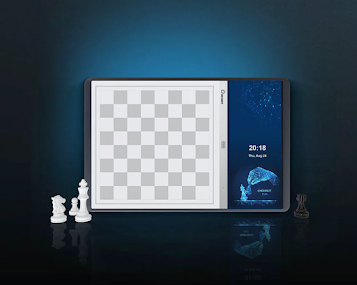Chess has long been considered a game of strategy and intellect. For centuries, players have honed their skills on traditional wooden chess boards, moving pieces across checkered squares. However, in recent years, there has been a remarkable transformation in the way chess is played, thanks to the advent of computerized chess boards. In this blog post, we will delve into the fascinating world of computerized chess boards, exploring their features, advantages, and the impact they've had on the game of chess.
The Birth of Computerized Chess Boards
The concept of computerized chess board emerged in the mid-20th
century, parallel to the development of computers themselves. Early experiments
involved computers simulating chess games, but it wasn't until the 1970s that
we saw the birth of the first commercially available computer chess board.
These early models featured basic LCD displays and limited functionality, but
they paved the way for the sophisticated devices we have today.
Features of Computerized Chess Boards
1. Digital Display: At the
heart of a computerized chess board is its digital display. This display
represents the chessboard and pieces, providing a clear visual representation
of the game. Modern models often feature high-resolution LCD or LED screens
that mimic the look of a traditional chess board.
2. Game Analysis: One of
the most powerful features of computerized chess boards is their ability to
analyze games in real-time. They can provide insights into each move, suggest
optimal moves, and even calculate the probability of winning. This feature is invaluable
for players looking to improve their skills.
3. Connectivity: Many
computerized chess boards are equipped with Wi-Fi or Bluetooth connectivity,
allowing players to connect to online chess databases, play against opponents
from around the world, or access chess engines for assistance.
4. Databases: These boards
often come with built-in databases of famous chess games, allowing players to
study the strategies of grandmasters and historic matches. This is an excellent
resource for learning and improving one's game.
5. Adjustable Difficulty
Levels: Whether you're a beginner or an experienced player, computerized chess
boards offer adjustable difficulty levels. This ensures that players of all
skill levels can enjoy a challenging and fulfilling game.
6. Interactive Learning:
Some models incorporate interactive lessons and tutorials, making them ideal
tools for chess enthusiasts looking to enhance their knowledge and skills.
Advantages of Computerized Chess Boards
1. Learning Tool:
Computerized chess boards are exceptional tools for learning and improving
chess skills. They provide instant feedback, analysis, and access to a wealth
of resources, helping players progress rapidly.
2. Convenience: Unlike
traditional chess sets, computerized boards eliminate the need for physical
opponents. You can play against the computer, against friends online, or even
use the board for solo practice.
3. Space-Saving: Chess
enthusiasts with limited space at home will appreciate the compact nature of
computerized chess boards. They take up less space than a traditional set and
can be easily stored when not in use.
4. Preservation of Games:
These boards automatically record and store your games, allowing you to revisit
and analyze them at any time. This is a valuable feature for players looking to
track their progress and study their mistakes.
5. Engaging Experience:
With their interactive features and visual appeal, computerized chess boards
offer a more engaging and immersive chess-playing experience.
Conclusion
The introduction of computerized chess boards has undeniably
revolutionized the world of chess. These smart devices combine the timeless
appeal of the game with cutting-edge technology, making chess more accessible,
engaging, and educational than ever before. Whether you're a novice or a
seasoned player, a computerized chess board can be an invaluable companion on
your journey to mastering this ancient game of strategy. So, why not embrace
the future of chess and experience the benefits of a computerized chess board
for yourself? Your next game might just be your best one yet.








0 Comments